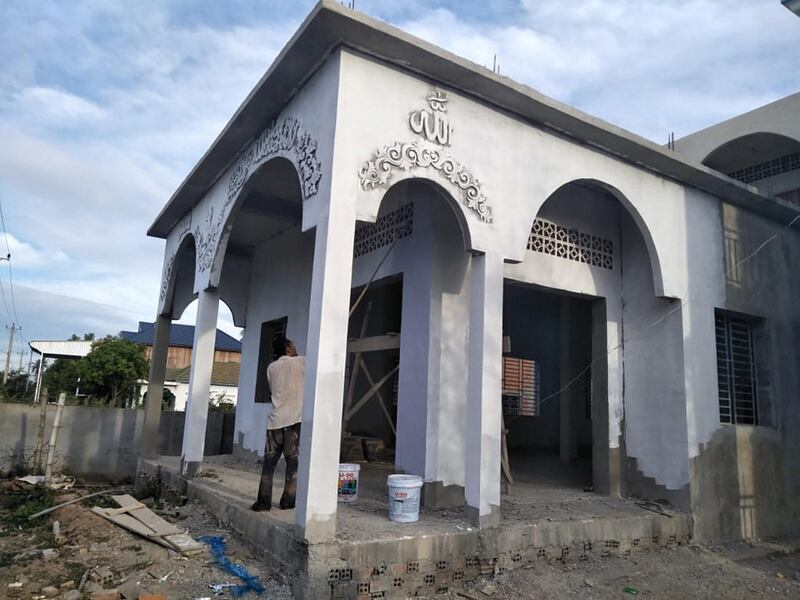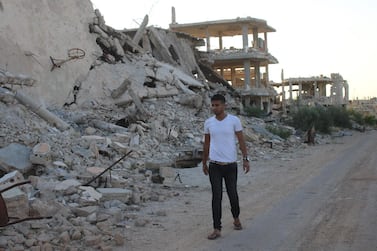More than a dozen mosques, schools and health clinics have been built for marginalised Muslim communities in South East Asia using donations from the UAE.
British charity KungFuture International, which works in countries including Cambodia and Vietnam, said it has been overwhelmed by the “phenomenal” support of Emiratis for Muslim minority groups.
UAE nationals have donated about $500,000 (Dh1.8 million) over the past few years to support KungFuture International’s work in South East Asia. In addition to the buildings, the money has been used to build wells for communities living in remote areas.
But the group said many who have donated money are reluctant to publicise their good deeds, so it wanted to come forward to acknowledge the assistance, which has enabled it to build more than 20 buildings.
“They don’t insist I put a big banner up or take pictures or put it on social media and these kind of things. It’s very quiet, gentle, but impactful giving,” said Ben Goedenian, the charity’s managing director.
“Across the board we have government officials, ministers, and individuals who have supported us and want to remain anonymous.”
The UAE is the world's largest donor of official development aid, relative to its national income, according to the Organisation for Economic Co-operation and Development (OECD).
With a total contribution of Dh19.32 billion of developmental aid in 2017, the UAE spent 1.31 per cent of its gross national income, almost twice the global target of 0.7 per cent set by the United Nations.
There are no official figures available at an individual level, donations to charities like KungFuture International show UAE citizens also give generously to good causes.
Mr Goedenian said there was interest from the UAE in helping Muslim communities in Cambodia, Thailand and Vietnam from the start of their involvement in the region. But the charity was initially unsure whether to accept donations to help one specific group of society.
“At the beginning I was a little bit reluctant, because I didn’t want to add a strong religious agenda to the charitable work. You wanted to be fair and support anyone who is in need, rather than just build schools for one particular group,” said Mr Goedenian.
“But through the process of doing that and investigating we learned that there were many minority Muslim groups who did need support.”
He contacted various organisations in the UAE, but did not receive much of a response. However, a number of individuals he had contacts with from working as a consultant in the country previously came forward to say they wanted to support the charity’s in helping minority Muslim communities.
“It started off quite slowly, then the word spread. It created a bit of a wave with one person telling another. And before I knew it there was massive support coming from the UAE. It was a bit of a shock,” said Mr Goedenian.
About 30 Emiratis have visited some of the projects in recent years, which he welcomes.
“In a development organisation, you don’t want to bring volunteers out just for the sake of it, for shameless publicity and do things they don’t really need to do,” said Mr Goedenian.
“When it comes to volunteering, what is much more beneficial is for them to see – and of course if they have a skill set that’s much more beneficial, like a nurse, doctor or engineer, that would be ideal. But if it’s someone younger studying at university, they can meet the community and get involved that would be very useful. And of course they would go back and be inspired by the experience.”








